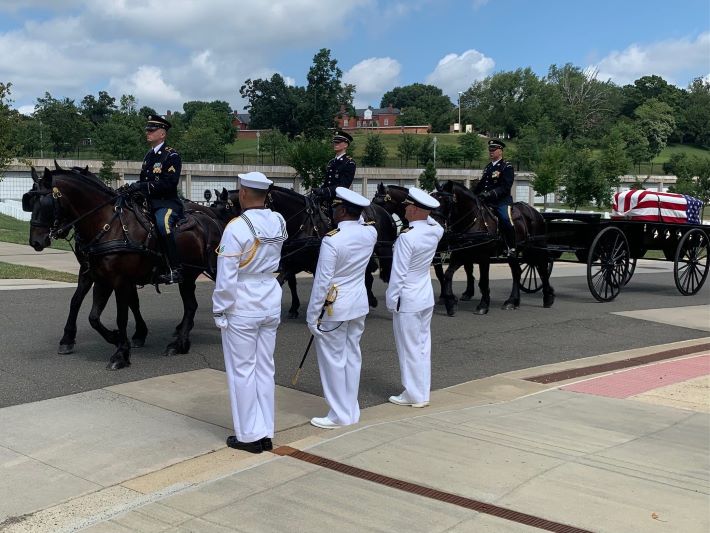
U.S. Navy Corpsman Jon Bayer risked his life to save wounded Marines in Vietnam before finding the love of his life and becoming a doctor. He served with the U.S. Marine Corps’ Delta Company, 1st Battalion, 4th Marines, south of the Demilitarized Zone (DMZ), the dividing line between North and South Vietnam, from 1966 to 1967.
While there, he befriended the battalion surgeon, Dr. Bob Wertz, who advised him to leave the Navy and use the GI Bill to go to medical school. Bayer was later wounded and evacuated to the United States. He recovered and was stationed at Rota, Spain. As he prepared to leave the Navy, he met Navy Nurse Lt. Sharon Tiemann.
They met at a New Year’s party on Dec. 31, 1968, and had their first date on Jan. 2, 1969. Two and a half months later, on Valentine’s Day, he presented her with a box of chocolates with a diamond ring inside.
Bayer was getting out of the Navy, and Sharon was in love. “I just knew he was one,” she said. They married in Spain two months after his proposal. During their 54 years of marriage, they had three children: Shon, Michelle, and Lisa.
Bayer attended college and medical school, becoming an ophthalmologist. He rejoined the Navy as a lieutenant and served for almost 20 years, retiring as a captain, serving altogether for 31 years.
On Aug. 11, 2025, Sharon and her family and friends said their final goodbyes to Jon Bayer in Section 83 of Arlington National Cemetery. Navy Chaplain (Lt. Cmdr.) Doyl McMurry told the gathered mourners that Bayer had demonstrated “the Navy's core values of honor, courage and commitment.” McMurry added that Bayer took great pride in being a sailor. “You don't do 31 years without loving it and the people a whole lot,” he said. Then he addressed Sharon and her children, telling them, “As much pride as he had at being a sailor, he took even greater joy in being your husband, being your father and being a grandfather.”
Sharon cried as a Navy captain presented her with the flag that had been held over her husband’s urn. She later said that she appreciated the time between her husband’s passing and the funeral service. “We're all present in the moment and enjoying the celebration of his life,” she said, “rather than grieving.”
After the service, Dr. Wertz reflected on Bayer’s service in Vietnam. “He was a very bright kid, and it was obvious that he had more to offer than just being a hospital corpsman, which, in itself, is something major in my book,” he said. “Those corpsmen were truly heroic.”
Bayer’s daughter, Michelle, said that her father never spoke about his time in Vietnam, “because it was a terrible experience over there.” Yet she also recalled her father recommending military service to her cousin, who joined, loved it and went to college, becoming a nurse. “All my father wanted to do was help people and leave the world a better place,” she said.
The funeral service, with a Navy band, caisson, firing party, and bugler, impressed Sharon and Michelle. “He would have been very pleased,” Michelle said. Sharon agreed. “He deserved a send-off like that.”